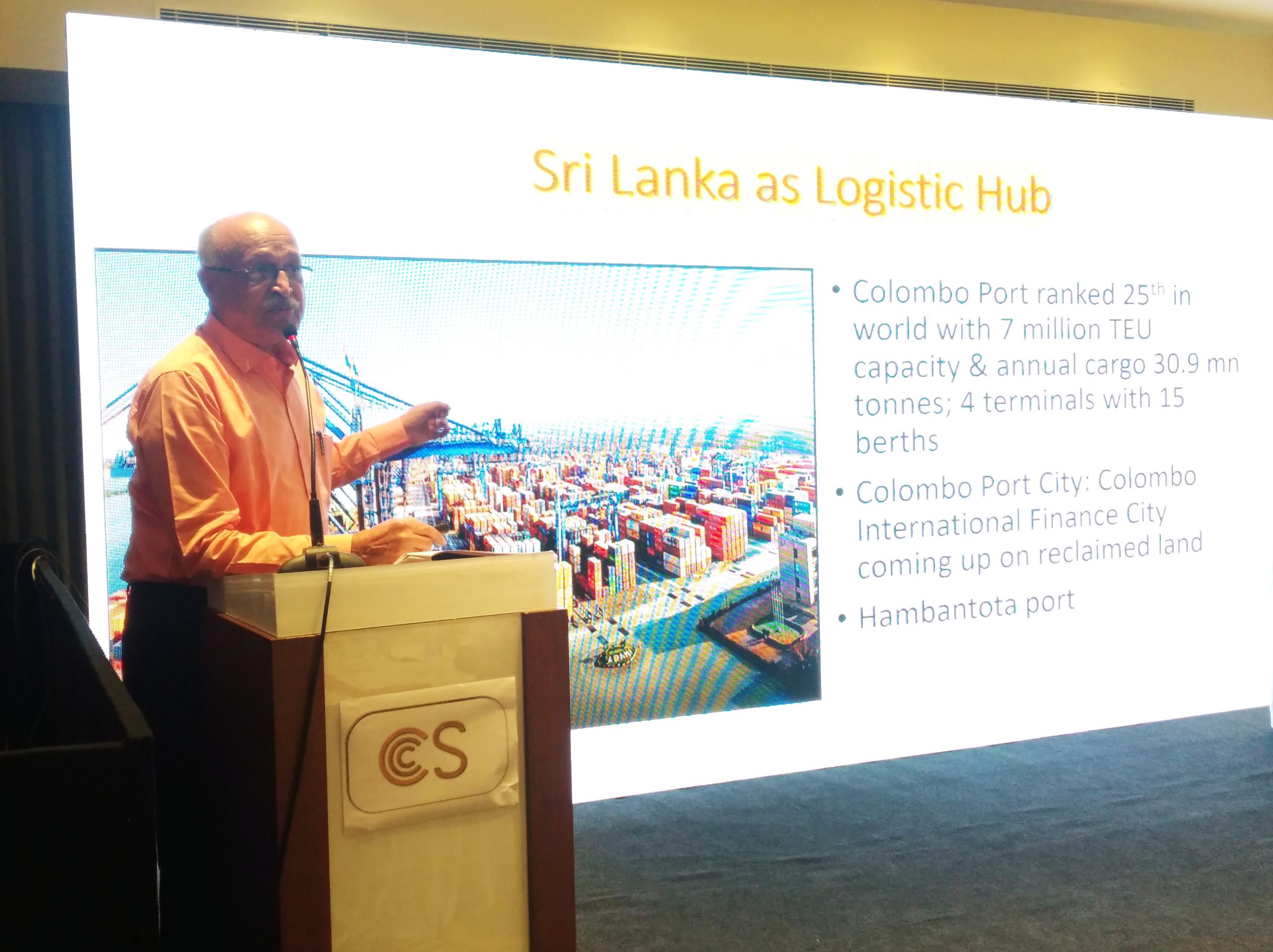At a time when China is jostling to secure more strategic interests and political ambitions in the crisis-hit Sri Lanka, Ashok Kantha, former Indian Ambassador to China, stressed on security cooperation between India and the island nation. He was speaking at a conference on Sri Lankan crisis, convened by Chennai Centre for China Studies on Friday.
Kantha said India’s recent Dornier aircraft gift to the island nation illustrates a close security partnership between the two countries. Security conclaves like Colombo Security Conclave need to be continued, Kantha remarked. His remarks came after a controversy over harbouring Yuan Wang 5, a Chinese satellite-tracking vessel, at Sri Lanka’s southern Hambantota Port, on August 16.
Commenting on the vessel’s docking at Hambantota Port, Lt General PR Shankar (retired) said, “It’s for the first time in 25 years we have told China to move out. It’s a great message. If you leave Shanghai and South China Sea, the only base they have is in Djibouti. That’s why they (China) need a satellite ship.”
While revealing his views on China factor in Sri Lankan catastrophe, Lt General Shankar underlined, “China is not to be blamed completely. But China is the root cause of the problem. China has pushed Sri Lanka into instability. China has got caught in this lending game. If it (China) burns its finger in Sri Lanka, China’s global ambition will be dashed. China’s economy is performing poor. If it doesn’t restructure it, China will collapse.”
Sharing details of Japan’s infrastructure projects and aids, Lt General Shankar added, “Japan has got deep roots into Sri Lanka and can be considered as alternative to China.”
Addressing participants, Kantha said, The “growth story of India and Sri Lanka will be intertwined”. He suggested India to closely engage in Sri Lanka without “getting involved in its domestic process”. “The future of Sri Lankan economy will benefit in closer economic ties between India and Sri Lanka. Sri Lankan will have a long and painful period of transition,” he added.
Talking about why Sri Lanka had to take loans from China, Group Captain R Srinivasan VSM (retired) on Friday said, “China’s interest rate is more than others. But China doesn’t ask whether your politics is corrupt or you have reformed your economy.”
“The public in Sri Lanka is not as anti-China as Indians want them to be,” Col R Hariharan said, while speaking at the conclave.
Joining in virtually, Dr Hasith Kandaudahewa, senior lecturer of International Relations at the University of Colombo, expressed his concerns, saying, “Sri Lanka is facing a foreign policy dilemma. We need India’s assistance for International Monetary Fund (IMF) loan. On the other hand, we need China’s support for restructuring the programmes. Otherwise, China will cut down all the loans.”
Talking to The New Indian, Kandaudahewa said, “If Sri Lanka successfully completes the staff-level negotiation with the IMF and receives financial assistance, Sri Lanka will privatize its airlines, telecom and energy. A slew of initiatives will be taken to generate more revenue, including hike of taxes. Besides, the crisis-hit island nation of 22 million will promote overseas employment for remittances.”
Colonel (retd) R. Hariharan who led the military intelligence of India during Indian Peace Keeping Force (1987-90) operation in Sri Lanka, said, “China is playing a political game. Sri Lanka wants to make strategic relations with India. China has resisted that. India is the first signatory of Free Trade Agreement (FTA) but China has compelled them to sign the FTA.” China will step in and provide financial help at a time of its choice. Sri Lanka elite have already accepted the debt trap, said Kantha.

